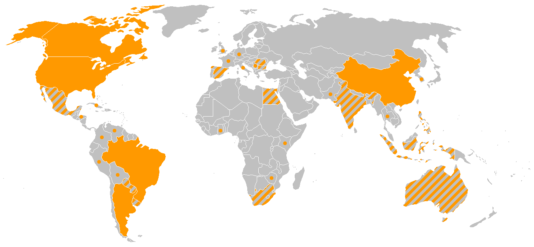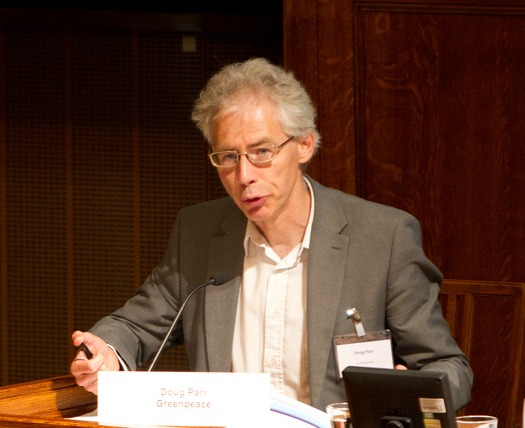- About
- Topics
- Picks
- Audio
- Story
- In-Depth
- Opinion
- News
- Donate
- Signup for our newsletterOur Editors' Best Picks.Send
Read, Debate: Engage.
| December 01, 2014 | |
|---|---|
| tags: | #biotechnology, #EU, #GMO, #Sustainable Agriculture |
| located: | France, Germany, USA |
| by: | Itai Lahat |
A lot can be said about the European Union challenges and problems. While youth unemployment is becoming a serious issue and parts of the continent are in the midst of a deep economic crisis, there are also many rays of hope and progressivity.
One of them was demonstrated just a few days ago when the EU politicians backed a plan to allow nations to ban genetically modified crops on their soil even if they are given approval to be grown in the European Union, raising the chance their use will remain limited on the continent.
Reuters report: Widely grown in the Americas and Asia, GM crops in Europe have divided opinion, with opposition in many countries including France and Germany, while Britain favors them. A previous compromise endorsed this year by EU ministers would have required negotiation with the relevant companies if a nation wanted to ban a GM crop in the event it had been approved for EU-wide use. The plan voted through parliament on Tuesday would leave out that stage and allows member states to ban GM crops on environmental grounds. It drew praise from GM opponents.
This move by the EU is simply fantastic. It also corresponds with an interesting report, recently published by Greenpeace. The environmental campaign group – which has long been against GM foods – claims that a “silent revolution” in agriculture is showing a stronger track record than the GM process, which it labels as having shown disappointing results.
“Whilst the debate between GM and non-GM has used up most of the political oxygen, this report shows it is not the only – or indeed, the best – show in town. There is a growing range of non-GM biotechnologies which show how a growing world population can be fed at a time when natural environments are increasingly stressed,” said Greenpeace chief scientist Dr Doug Parr. “It’s a silent revolution, making huge strides on the ground for the world’s farmers without the novel risks of GM,” he said. “The debate is not about GM anymore; things have moved on.”
The EU plan and the Greenpeace report are only a part of a trend slowly taking hold in the world. Just a few months ago NPR reported on how non-GMO is taking its rightful place amongst major food companies that are quietly banning them from their products. According to an NPR report, some companies, like Ben and Jerry’s ice cream are very vocal about keeping their foods GMO free, placing it prominently on their labels and making it a selling feature for their products. Other companies are starting to follow suit but in a much more behind-the-scenes fashion. NPR reports that General Mills’ original plain Cheerios are now GMO free, but the only word anyone has heard about it was on a company blog post earlier this year. There isn’t even anything on the label that lets you know.
Nathan Hendricks, an agricultural economist at Kansas State University told NPR that big food producers are holding back and trying to determine the direction consumers are going with their food preferences. “Ultimately, these big companies aren’t just friends with Monsanto or something,” Hendricks told NPR. “They want to make a profit, and they want to be able to do what’s going to make them money. This means they will need a non-GMO product line in the works in case the winds end up blowing that way”. All is left than is for us consumers, to convince them that winds are indeed blowing in the direction of non-GMO.
By copying the embed code below, you agree to adhere to our republishing guidelines.


